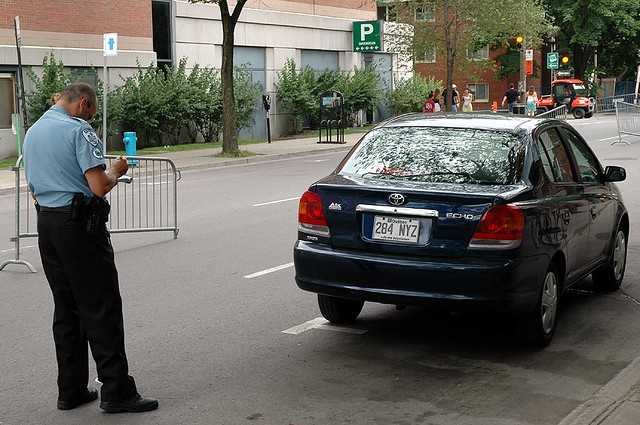A woman from Saginaw, Michigan, who was convicted of numerous parking violations, had those charges overturned by the 6th Circuit of the U.S. Court of Appeals on Monday. The appellate court held that the common parking enforcement tactic of “chalking” without a warrant was a constitutional violation of the Fourth Amendment, AL.com reports. “Chalking” is a method used to measure parking times where meters aren’t present. Parking enforcement can mark a tire, and if the chalk is still there after a certain period—they issue a parking citation.
The Defendant, Alison Taylor, fought 15 parking tickets by asserting the act was a violation of her Fourth Amendment protection against unreasonable searches and seizures without a warrant. The question of the case was evaluated based on two questions: does chalking constitute a search, and is the search unreasonable? The Fourth Amendment protects the “right of the people to be secure in their persons, houses, papers, and effects, against unreasonable searches and seizures” and “safeguards the privacy and security of individuals against arbitrary invasions by governmental officials.”
It seems like an absurd conclusion, but “chalking” was held to be a search, since the practice qualifies as trespassing upon a constitutionally protected area and is used to obtain information for prosecution. In Taylor’s case, the protected area was her car and the time the vehicle was parked was the obtained information.
Citizens have less of an expectation of privacy in their cars, compared to their homes, so there are numerous exceptions to automobile searches without a warrant. However, the City of Saginaw failed to establish that any warrant exception applied to “chalking” tires, meaning a search warrant is required before any tire can be marked.
You can read the full appeal of the chalking case here. Do you think this case stretches the definition of a search too far? Or should citizens expect parking enforcement to come with a search warrant and their chalk? We would love to know your thoughts on this ruling.
Photo credit: caribb on VisualHunt / CC BY-NC-ND
